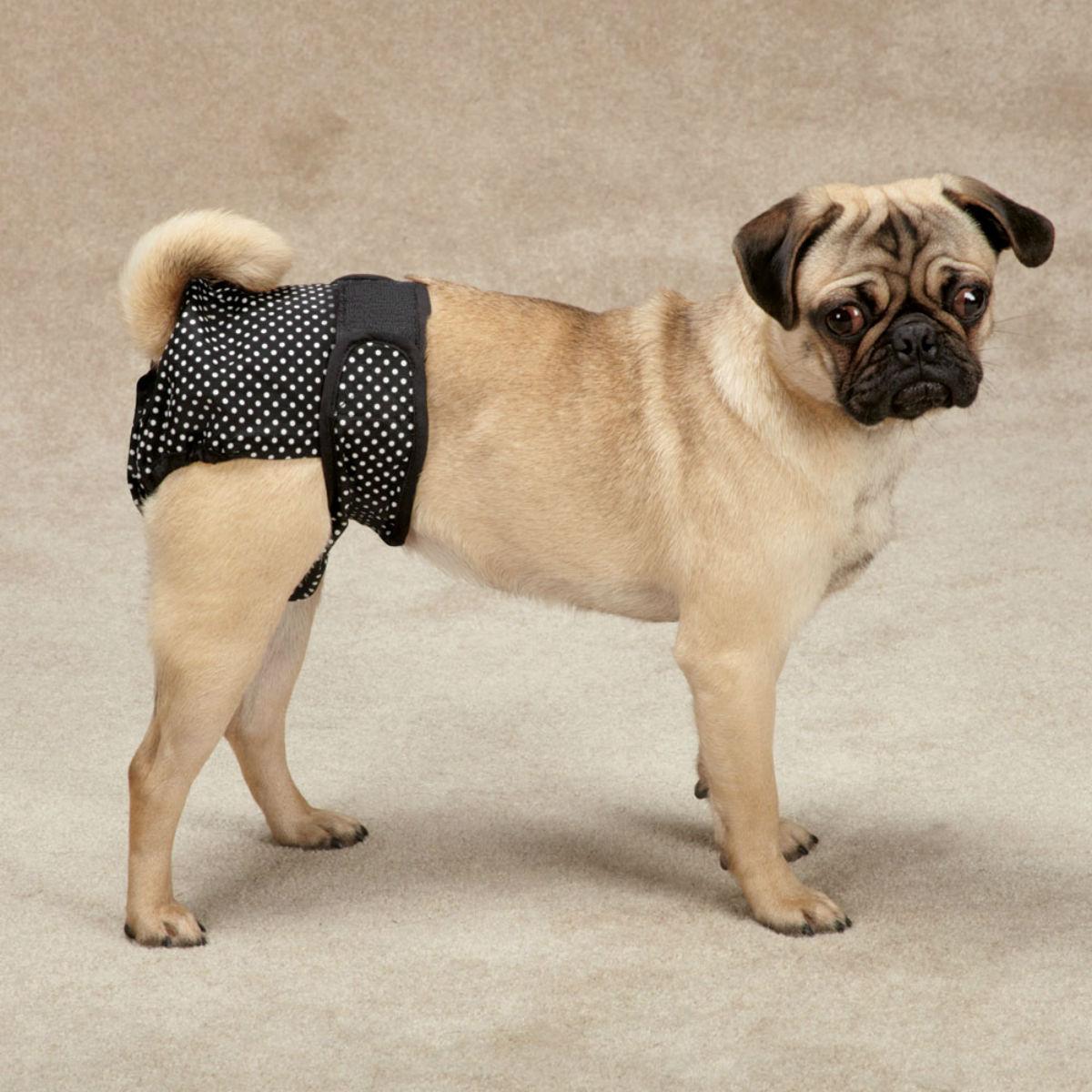Incontinence is the inability to control bodily functions, particularly the excretion of urine or feces. In dogs, urinary incontinence is more common, affecting 20% of spayed female dogs. It is more common in middle-aged and senior dogs.
The health issue is often frustrating or upsetting for owners, but it is manageable. With a diagnosis and the right tools, you can limit damage to your home and improve the quality of life for your canine companion.
Determining the Cause
If your dog has frequent accidents in your home, you should first determine if the cause is behavioral or health-related. Take your dog to the veterinarian for an exam and an official diagnosis. The veterinarian usually conducts a physical exam, bloodwork, urinalysis, and imaging.
During the examination, the doctor will review your dog's medical history and age. Several conditions can cause urinary incontinence, including:
• Age-related decline
• Bladder stones
• Hormonal imbalances
• Medication side effects
• Neurological problems
• Surgery complications
• Urinary tract infections
Management Strategies With Veterinarian Guidance
Once you have an official diagnosis, you and your veterinarian can discuss management strategies. Depending on the cause of the incontinence, your dog's veterinarian might prescribe medications like antibiotics for UTIs, hormone supplements, or muscle relaxants. Some causes, like bladder stones or anatomical abnormalities, might require surgery.
Tailored Home Treatments
The veterinarian might recommend dietary changes depending on the underlying cause of your dog's incontinence. The dietary suggestions may include supplements and foods formulated for urinary, kidney, and bladder health. Several popular options for an incontinent dog include:
• UroMAXX™ Urinary, Kidney & Bladder Dog & Cat Supplement
• Purina Pro Plan Veterinary Diets UR Urinary Ox/St Dry Dog Food
• Purina Pro Plan Veterinary Diets UR Urinary Ox/St Canned Dog Food
Home Care Tools and Tips
Incontinence can strain your relationship with your dog. The condition is embarrassing for your dog; it knows it is not supposed to go to the bathroom in the house. Because the dog feels embarrassment and shame, it may withdraw or hide.
You don't yell at your dog because you know it has no control over the accidents, but you might get frustrated with the damage to your home and the constant cleaning. Your dog feels that frustration. Between the embarrassment and agitation it feels, the dog can become more distant, and you will probably notice a strain in your relationship. Thankfully, you have options that can reduce your frustration and your dog's embarrassment.
Diapers
Many owners with incontinent dogs use pee pads or training pads to help reduce accidents, but this solution has a problem: Training pads assume your dog knows when it will go to the bathroom and will have time to make it to the pad. Unfortunately, incontinence does not offer such luxuries.
A better option is dog diapers. Diapers allow your dog to maintain mobility and independence, allowing it to remain a household member. They also contain accidents, protecting your flooring, furniture, and belongings.
You have two options for diapers: disposable or washable. Disposable diapers, like ClearQuest Disposable Dog Diapers, are more convenient because they can be removed and disposed of without any hassle. Washable diapers, like ClearQuest Washable Cover Ups Dog Pants, are more environmentally friendly but require some messy work. You will also need multiple washable diapers to ensure one is always clean.
Increased Walks
When you own an incontinent dog, you need to adjust your schedule. You must allow extra time for cleaning up and bathing the animal, as well as schedule more walks or outdoor time. By taking your dog outside more frequently, you can reduce the risks of accidents in the house and reduce any anxiety your dog may have about having accidents in the house.
More walks can also improve the bond between you and your dog while improving bladder and bowel health. Regular exercise helps stimulate proper bladder and bowel function.
Patience and Kindness
The best thing you can do for your dog is remain calm and loving. Incontinent dogs have a health condition, not a behavioral problem. You can help your dog feel loved and know they are not bad by showing continued patience and kindness.
Still, repeat accidents and property damage are frustrating, so to help limit stress, you can invest in powerful cleaners. Two cleaners with positive reviews include:
• Skout's Honor Professional Strength Urine Destroyer Carpet Pad Penetrator
• Skout's Honor Professional Strength Urine Destroyer
Investing in powerful cleaners is worthwhile even if you purchase diapers and other accident preventatives. Every pet parent knows that accidents are always possible, even under the best conditions.
Long-Term Outlook
Incontinence diagnoses can vary in severity. Many cases are treatable and temporary, such as incontinence caused by a UTI. Other cases, like those caused by age-related decline, are manageable with medications and dietary changes. Still others are progressive, such as those caused by neurological conditions.
Regardless of the incontinence diagnosis, you must focus on your dog's quality of life. You want them to be comfortable and feel loved. In terms of comfort, you can invest in indoor/outdoor washable pet bedding, such as the Pendleton Pet All Season Indoor/Outdoor Pet Napper Dog Bed - Serape Blue. Regarding love, just treat your dog as your favorite companion. Take them on walks, play with them, and keep them with you as often as possible.
Incontinence is a difficult condition for dogs and a challenge for owners. Still, as long as you have love and patience, you and your dog will make it through.
















